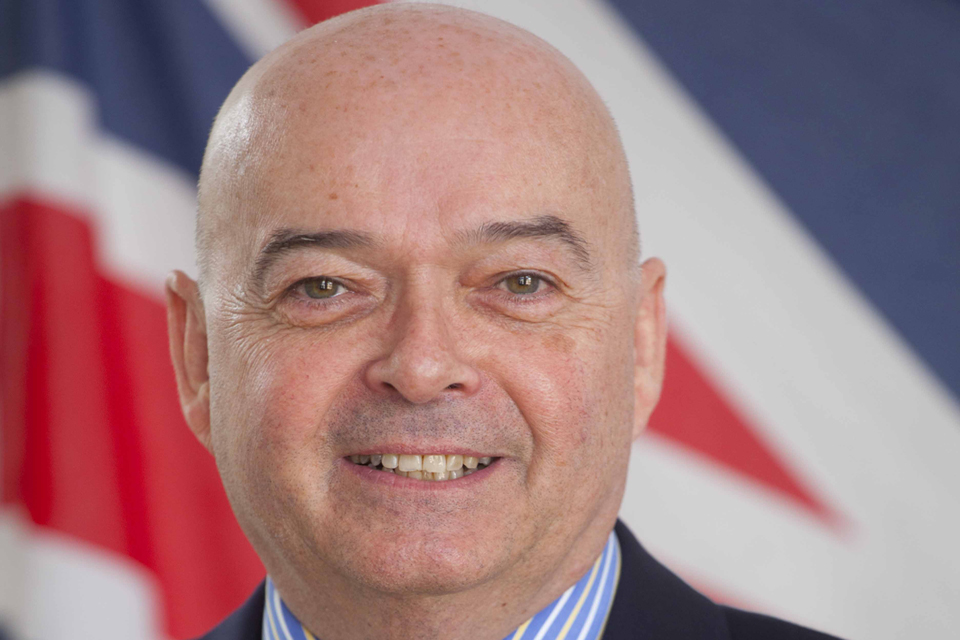Climate Change - Seventh International Conference on Community Based Adaptation
High Commissioner Robert Gibson's speech at CBA7 in Bangladesh

Your Excellency Mary Robinson, (Former President of Republic of Ireland and UN High Commissioner for Human Rights), Dr. Saleemul Huq, Dr. Atiq Rahman, distinguished guests, ladies and gentlemen.
It’s a great pleasure for me to be in here this morning in support of this auspicious event. I will keep my comments short as I recognize that much has already been said over the last few days from a rich pool of world class local and global experts.
But before I begin could I add my voice to those who have expressed great sadness about the tragedy at Savar yesterday. My thoughts and prayers are with those who have lost and suffered, with those who may still be trapped in the building hoping and praying for rescue, and with those waiting in hope.
I applaud the dedicated and distressing work of the rescue services and the selfless assistance offered by many people in Bangladesh.
We all need to learn from this so that those how have suffered have not suffered in vain. I hope that the memory of those who died, in this unimaginable tragedy, will be served by * a greater and wider respect for the rule of law at every level, * widespread nationwide constructive dialogue, including condemning violence, * ensuring regulations are followed and * ensuring corruption is eliminated in both public and private sectors. The law should be there to protect and support us all.
Human life is not cheap: every soul is precious. We must preserve that thought.
Now turning to the subject in hand. As we are all aware Bangladesh is one of the most vulnerable countries to climate change impacts. But it is also a country that is in the forefront of responding to the climate change challenge, both on domestic and international fronts. The UK government clearly recognises the unique position of Bangladesh. We have been regularly supporting both the Government and civil society’s efforts in tackling climate change. Our Climate Change Programme in Bangladesh will ensure that at least 15 million people will have increased resilience to climate change. And an improved ability to respond to and recover from natural disasters.
It has been a privilege for me personally to have witnessed some of this resilience. It is both heart-warming and humbling to see how those most at risk have coped with the challenges they have faced and face. To see widows rebuild their lives better than before. To see orphaned children face a brighter future. To see villages, once destroyed become vibrant communities again, represents both the success of our programmes but also underlines the extent of the challenges we face.
The UK government is trying to do its bit. We are committed to reducing emissions by at least 30% by 2020. We are also leading the way in supporting the poorest countries deal with the consequences of climate change.
We acknowledge that adaptation efforts should include managing the risks of loss and damage. By our significant commitments of international climate finance, through the global climate investment funds of which the Pilot Programme for Climate Resilience is active in Bangladesh, we are helping countries adapt to the unavoidable impacts of climate change.
We have also supported development of crops, crops that will help increase the resilience of countries and communities. These include drought tolerant varieties of maize and flood resistant varieties of rice. We are optimistic that locally our investments will yield positive results.
I am glad to say that our relationship with the conveners of this conference IIED, ICCCAD and BCAS has been a long and fruitful one. One that has resulted in improved national capacity for adaptation to climate change in Bangladesh. I am also glad to see that the Community Based Adaptation Conference (CBA7) has really taken off. As this meeting testifies, it has become a growing community of practice with global influence.
As adaptation to climate change gains increasing importance in the global climate discourse, particularly under the UN’s Framework Convention on Climate Change, it is very important to remain focused on the most vulnerable and least resilient communities. The CBA is making a very important contribution to this. The knowledge shared over the past three days clearly underlines the value of community action and demonstrates that communities are indeed dynamic and are already working hard to adapt in the face of the challenge of climate change.
The CBA7 showcases how Bangladesh is becoming a world leader in community based adaptation.
There have been many examples of how Bangladesh is innovating and incorporating the lessons from community based programming into international, national and local processes. This forum also showcases the importance of strong relationships between all stakeholders including Government and civil society. I am sure you all appreciate how important collective action is. Mainstreaming community based adaptation is a huge challenge. Forming strong and dynamic partnerships is critical for success.
This conference is an important milestone in engaging the wider community on these issues. It is a strategic opportunity to mainstream community based adaptation nationally and internationally. I know we leave this event armed with both knowledge and enthusiasm.
The UK remains committed to continued engagement and to supporting this community of practice fulfil its role to enhance knowledge and understanding. I thank you for your time and I look forward to hearing more about how community based adaptation is evolving in different countries and contexts at the next CBA.
Thank you.